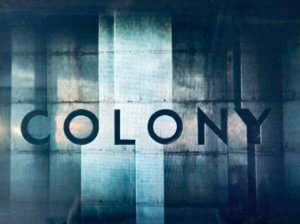Posts Tagged ‘tv series review’
INTO THE DARK: ALL THAT WE DESTROY, A No Spoiler Review

The series, INTO THE DARK, is a Hulu concept, a horror anthology series in the vein of The Twilight Zone, though each production is as long as a feature film. In the show’s first season, Hulu released one episode per month, for a total of 12 episodes. All of the episodes were tied thematically to a holiday that falls within that month.
The 8th episode was released in May under the title: ALL THAT WE DESTROY. The story is inspired by Mother’s Day.
ALL THAT WE DESTROY is horror, but with a scifi twist. It is a tale in the vein of Ex Machina, the drama unfolding around a brilliant scientist who runs a lab in a remote location. It’s a story as old as Mary Shelley’s Frankenstein and a trope that will please both the science fiction nut and the horror fan. In other words, this HULU original does not disappoint in terms of revealing a monster or two…
I would rate this film R for violence and language. Trigger warning to those who might be disturbed by violence perpetrated against the vulnerable. This is a monster movie.
Short Review: Four Reasons To Watch INTO THE DARK
- Lots of edge-of-your-seat suspense and mystery.
- The characters surprise, yet for all their weirdness, they are relatable.
- Strong female leads, with themes around motherhood and life-creation.
- The story takes place in a desert hideaway where the sun shines brightly. I found it refreshing to see this setting for such a dark and troubling tale.
Longer Review:
Point of View determines how a story like INTO THE DARK will unfold. In the case of this film, the POV primarily rests with the supposed monster, the creation. In the opening scene, the audience watches her wake up out of a tub of black sludge. The audience learns within the first 20 minutes of the film that this young woman is a clone. The clone is lovingly washed and dressed by the scientist, whose hands the audience sees, but does not meet until later. Instead, we meet the scientist’s son. His mother is the scientist and she is a woman fixated on solving the dilemma of her son. She’s doing this in the only way she knows how, by using her science in what is clearly an unethical way.
The twist in this story, as you might imagine, is that the clone may or may not be the true monster.
Ex Machina was on my mind during much of the viewing of INTO THE DARK
In the case of Ex Machina (which I loved, but still haven’t reviewed on this site), the point of view is mostly held by the visitor who enters the lab. Mystery about what the heck the scientist has created drives the plot, ramping up tension as the visitor discovers (therefore, we the audience discover) the horrors of the scientist’s experiments. This tension culminates as the visitor understands that in order to survive, he will need to escape from the lab before the monster overcomes him. This is where a story such as Ex Machina, science fiction in its vibe, follows the haunted house script. Think Poltergeist, Amityville Horror, The Shining. Survival equals escape. Will the hero make it out?
INTO THE DARK gives the audience a twist on this haunted house trope. The point of view starts with the clone, but moves to the scientist and to the son at various points in the film. The clone is innocent in her birth and clueless about the dangers that lurk. The audience understands those dangers and strongly empathizes with her, is rooting for her.
Part way into the film, a visitor enters the action. It’s a chance meeting, but reveals the vulnerability of the scientist, her son and the ghastly experiment she has been conducting. The finale brings all the characters together. I liked the ending. It was packed with symbolism, but not overdone. A true Mother’s Day tale.
Battle Star Galactica, Check Out This Podcast

BSG was created for the SyFy channel by Glen A. Larson and Ronald D. Moore.
There is much pleasure in the re-watching for me. Last night, we viewed The Hand of God, episode 10, one of many amazing episodes in that first season. Our re-watch has me reflecting on what makes BSG so good?
- The writing is absolutely spot on. No-nonsense story-telling that provides the audience with a solid long-term arc of purpose and meaning: humanity, betrayed by A.I. known as Cylons, must leave their home and find another habitable planet. An epic journey in a space ship. Grafted onto the journey narrative are countless subplots that will draw in scifi and non scifi fans. How do the writers do this? That leads me to my second point…
- This story is inhabited by heroic, but flawed characters most of us can relate to.
- The production value is superb. Even in the 2019s, the set, special effects and costumes create a believable fictional world.
- The actors embody their characters well, extra dramatic heft carried by the Commander of the fleet, William Adama and President of the survivors, Laura Roslin (played by Edward James Olmos and Mary McDonnel respectively).
- The themes around protecting a way of life, more specifically, a democratic society in the midst of battle, are extremely poignant in our current political environment.
- Ethnically diverse cast of characters and women in key leadership roles.
If this will be your first time viewing the series, or if you’re re-watching like me, consider this podcast aptly named Galacticast to augment the full depth of each episode. It’s a fun and easy way to be extra nerdy about BSG. Click below for the link up.
A Podcast Discussing Each and Every Episode
As an aside, I find myself wishing The Expanse would produce an episode by episode podcast…Sometimes, I feel like I’m not quite getting it. Maybe in the re-watch, I will.
To watch the entire series, click here.
COLONY, Season 2: A Review Without Spoilers
High praise for COLONY, Season 2. In case you have not seen the first season, this review will contain a few spoilers for those first episodes, but none for season 2. You can read my review of Colony, Season 1 here
There is a third season of this show that will come to Netflix sometime this year (a few fan blogs predict as early as April 2019), having already aired on USA Network. Beware of going onto the USA Network site. You might stumble upon a few spoilers. USA Network features a number of still shots from season 3 in their promotion of COLONY.
Short Review…
The main reasons I recommend watching Season 2 is for the superb story and the characters. The writing is spot-on, a continuation of Season 1. Let me elaborate…
- The characters, whom the viewer has come to admire, love and/or mistrust in Season 1, develop and continue to feel real and relatable
- The mystery of the invasion is explained a bit more, but the story still holds plenty of tension
- The narrative continues to raise important moral questions around living under occupation…The moral conflict goes deep and is unique for each character. The show highlights this well.
Long Review…
I loved all of season 2, but found the early episodes incredibly fun to watch because they are a goldmine of backstory.
Season 1 of COLONY drops the viewer into an already occupied, alien-invaded planet. The viewer attaches to the characters first and then begins watching for clues to explain what is taking place. Even the characters living through the ordeal don’t know much. Some mysteries are explained, but many remain.
What is wonderful about season 2…Three key backstory events are provided.
- First contact with the aliens
- What took place on the actual day of the invasion
- How the invading aliens strategized with an early group of collaborating humans
Episode 1 of season 2 begins with another day in the life of the Bowman family, but in this case, it is the day of the invasion, hours before the wall comes down, isolating the LA Bloc from the rest of Southern California. (During season 1, the audience slowly learns that similar events have taken place in cities across the globe)
Packed into this episode is a window into how Snyder was chosen to rule over the masses.
Two men in suits, collaborators who know that the invasion is imminent, recruit him. They recruit him because he has embezzled from an educational institute for which he works. They recruit him not in spite of, but because his integrity is compromised.
“Even great men make two or three mistakes in their lives,” Snyder says, when confronted.
The men in suits answer: “It’s the choices you make today that will determine your future. All you have to do is say yes.”
Snyder says yes to this Faustian bargain. We already know he is an important character. The audience has followed his career, his successes and failures and the ways he has and continues to intersect with the Bowmans. His presence is constantly a tension, but always interesting.
Episode 2 is delightful as it gives a few interesting point of view shifts via some clever cinematography
- A view of what the Raptor’s see, those are the robotic drones (if they are truly robotic) that rule the skies on occupied Earth.
- A view of what lies outside the LA Bloc, including Santa Monica, but also beyond, outside of the Urban landscape
- A peek into the alien mindset and culture…I can’t say more without a spoiler
I’m looking forward to season 3, which might come to Netflix as early as April, but sad because USA Network has confirmed its end. Three seasons of COLONY and no more. That’s the bad news…the good new is…
Season 3 of COLONY is being touted as outstanding and possibly better than both the first and second. I look forward to watching it and following my binge watching, I’ll be sure to post a review here.

